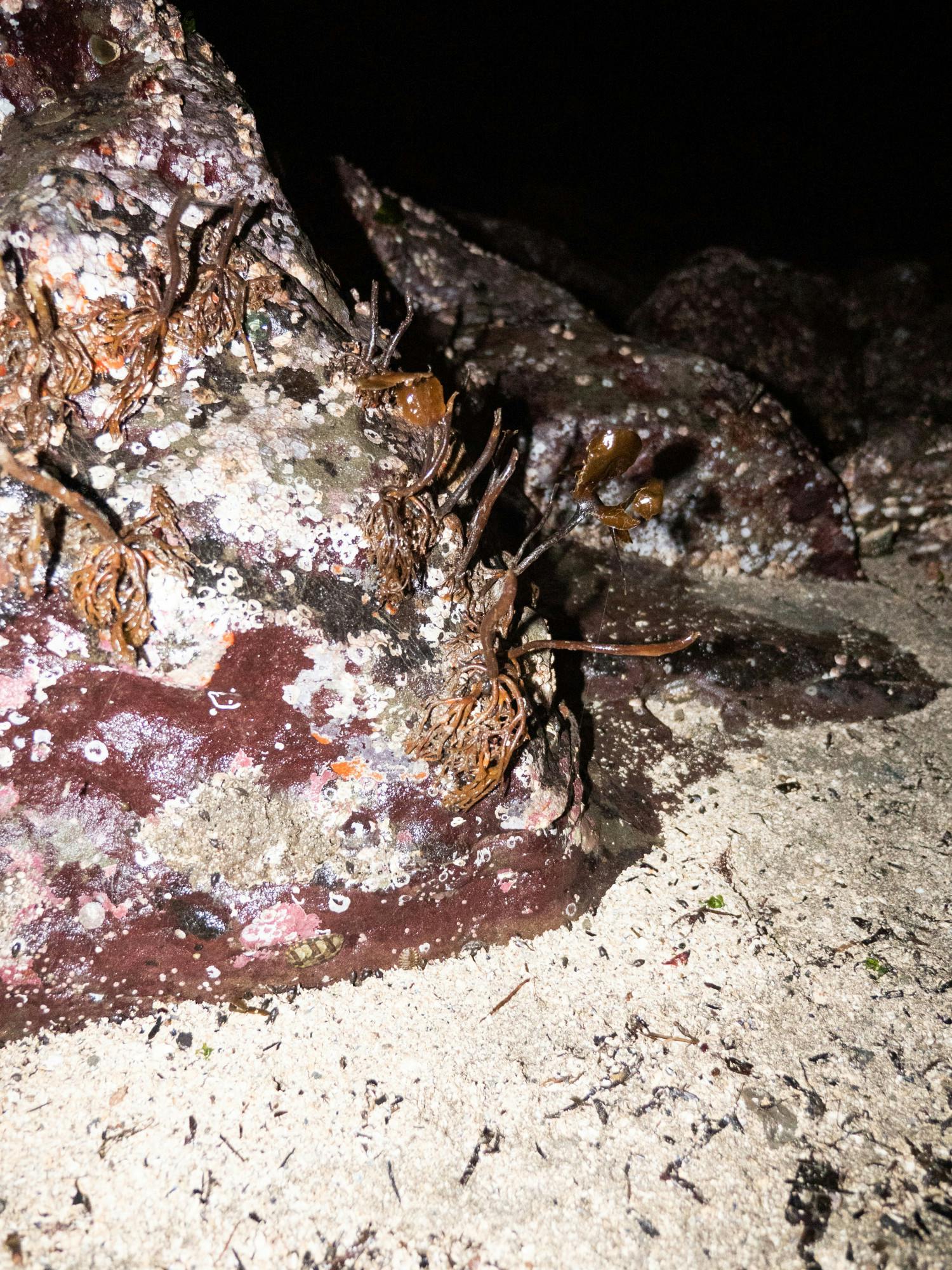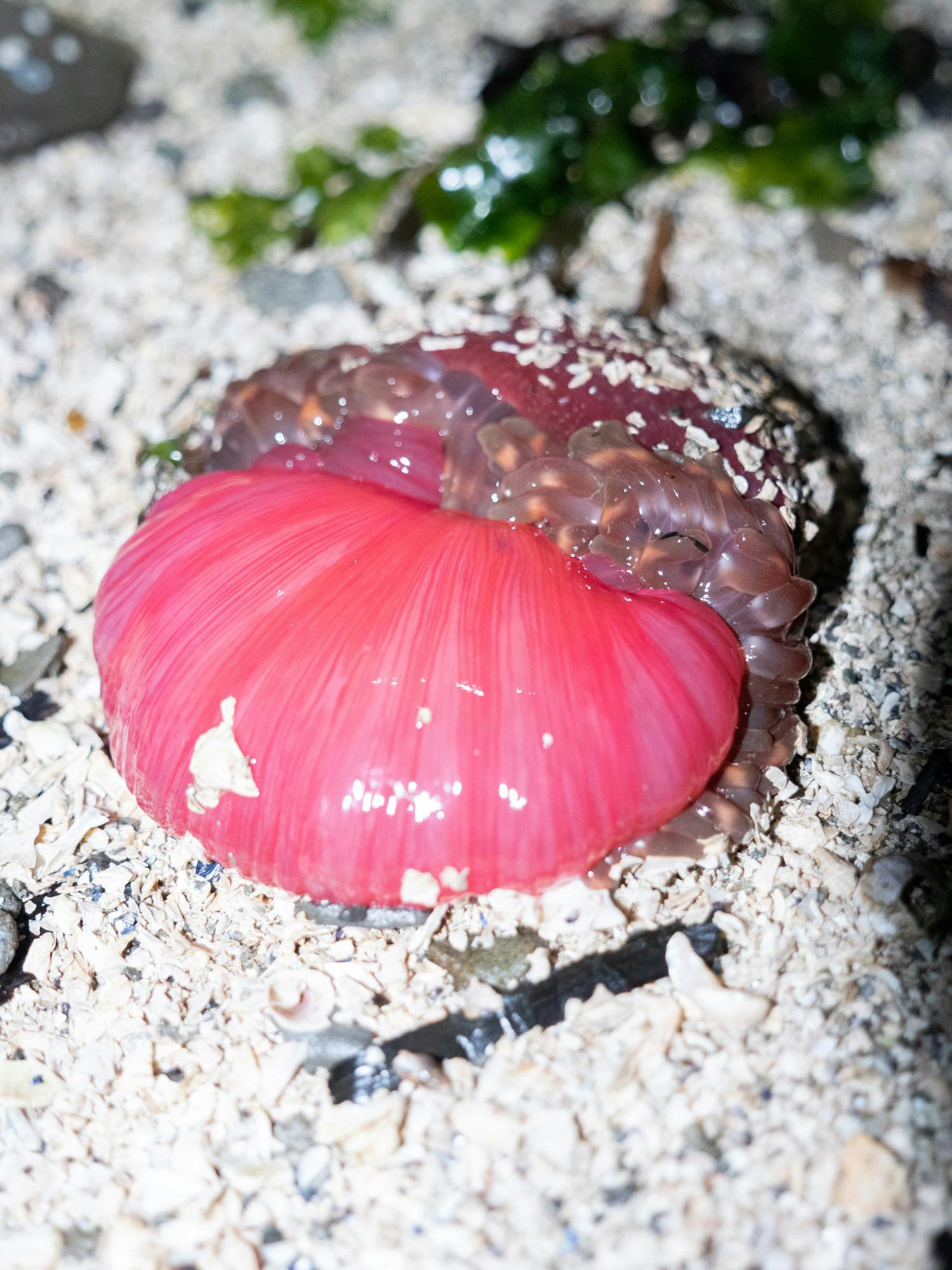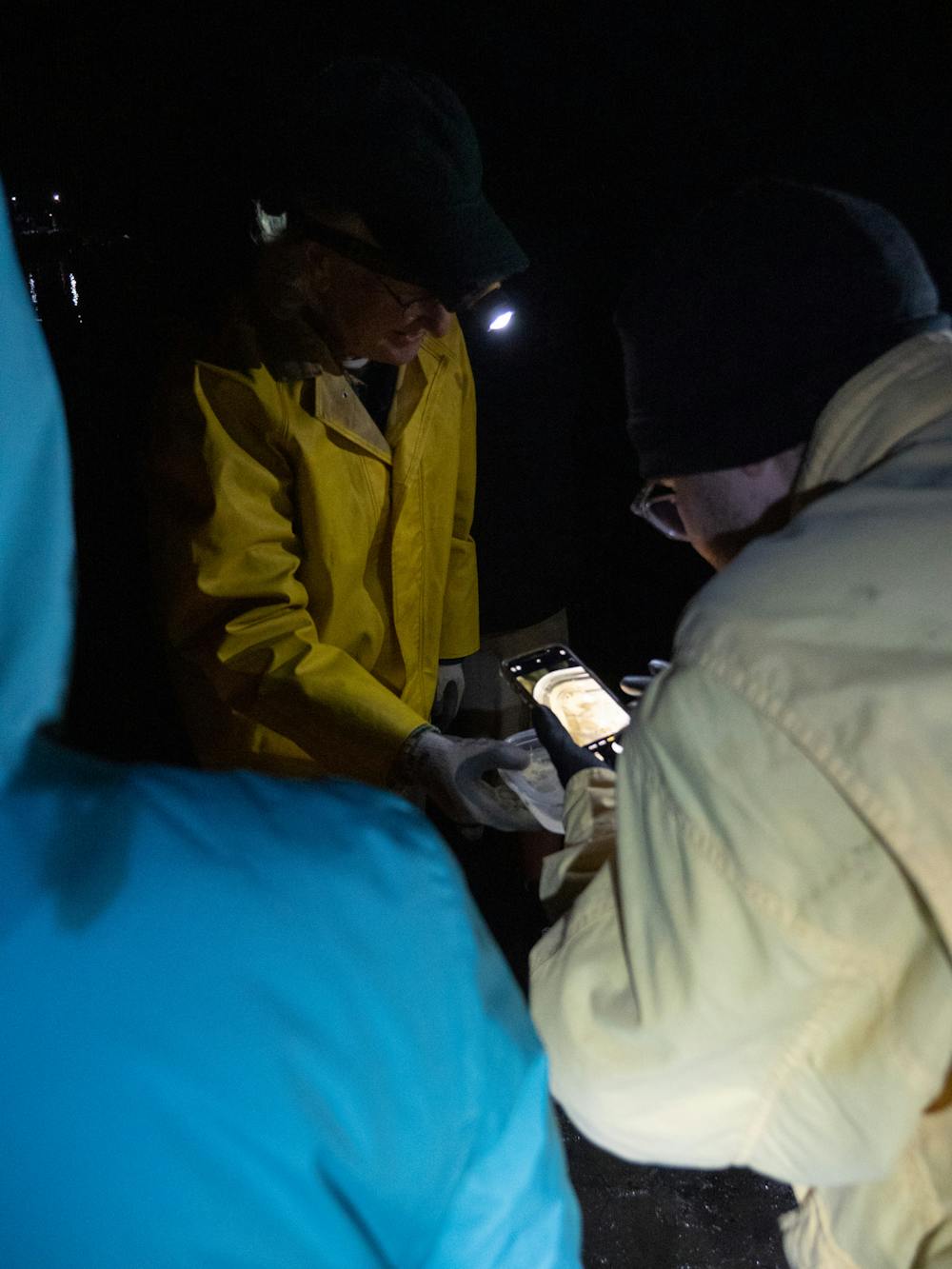RE Sources, a sustainability nonprofit organization founded in Bellingham, Washington, held a nighttime low tide walk at Larrabee State Park beach on Saturday, Jan. 21. Forty participants learned about delicate beach ecosystems in a relaxed and informational environment.
The organization is committed to protecting the Pacific Northwest’s natural coastal environment, creating a clean future for marine species and empowering others to follow suit with implementable practices. This event allowed participants to experience a hidden world exposed by low water levels and learn about tidepools, sea stars, anemones and lesser-known organisms like nudibranchs.
Participants expressed passion for the organization’s efforts to preserve and protect marine environments.
Lynne Givler has a background in intertidal surveys and is a volunteer leader for RE Sources.
“Beyond just being able to learn things, it’s also teaching them what’s here and understanding how to protect it too. Just learning about this, gaining an appreciation for anything in nature, makes you want to protect it more,” Givler said.

A kelp and barnacle-encrusted boulder lay exposed by low water levels on the Larrabee State Park beach in Bellingham, Wash., during RE Sources’ nighttime low tide walk on Saturday, Jan. 21, 2023. // Photo taken by Imogene Eagan
Low tide walk leader and husband to Givler, Keith Carpenter emphasized the importance of this.
People can’t understand nor empathize with what they can’t see and may consequently damage it unknowingly.
“The more I learn, the more I see how everything is connected and even the little tiny things are important. That’s mostly what we’re seeing tonight,” Carpenter said.
Though many participants had some prior background in marine sciences, the event informed all participants of proper beach etiquette. Some participants brought children to teach them about ecosystems and encourage them to care for the environment later in life.
Lilli Natto attended the event with her daughter.
“We like to do this for fun and check out all the animals. We take her to the aquarium, go and see it in the wild. We think it’s a once-in-a-lifetime thing to do, especially living out here,” Natto said.
During the event, participants walked on barnacle-encrusted boulders and peeked in between crevices to see clusters of spiky purple sea stars. Bright pink anemones caught the eye when spotted by the bobbing lights of headlamps.

A bright pink anemone lays exposed on gravelly sand on the Larrabee State Park beach in Bellingham, Wash., during RE Sources’ nighttime low tide walk on Saturday, Jan. 21, 2023. // Photo taken by Imogene Eagan
During the walk, one of the leaders made a unique discovery.
Those who were near enough to hear his exclamation huddled together to take in the sight: two different species of nearly transparent nudibranchs. The creatures were both small, delicate and resembled white jelly. One was spiky with white lining and the other rounded like an inflated rubber glove.
The event leaders said they had never found the two species in such close proximity. Witnessing the nudibranchs together offered a clear comparison of the organisms’ vastly different makeup across species.
RE Sources hosts free educational and participatory marine-focused events such as this frequently, sometimes scheduling up to three events a month. Its mission, to “mobilize people in Northwest Washington to build just and thriving communities to protect the land, water and climate on which we all depend,” is carried out by participants at events like the low tide walk.
“We still have enough natural environment here worth protecting,” Carpenter said.
Information about RE Sources events can be found on its website.
Imogene Eagan (she/her) is a city news reporter for The Front this winter quarter. She is a third-year visual journalism pre-major. She loves spending time at the Wade King Student Recreation Center, whether it be working at the front desk or weight lifting. She likes to spend her time outside of school by taking photos of Western’s athletic teams, collecting house plants and exploring the city with friends.
You can reach her at imogeneeagan.thefront@gmail.com.






